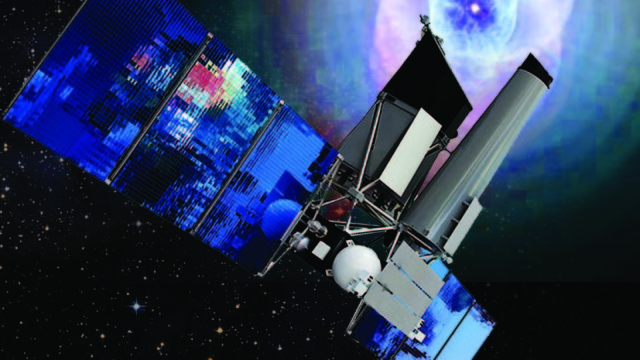Alexander Lutovinov, Deputy Director of the Space Research Institute, recalled that the formal term of guaranteed operation of the observatory is 6.5 years, of which five have already been worked out
MOSCOW, July 26. /tass/. The Russian space observatory Spektr-RG has given humanity the opportunity to obtain "the best, most detailed map of the universe." This was told to TASS by Alexander Lutovinov, Deputy Director of the Space Research Institute (IKI RAS), as part of the awarding ceremony for the participants of the Spektr-RG project on the occasion of its fifth anniversary.
"Already with the data set that we have today, in the soft X-ray range we have by far the best map that has ever been obtained by mankind. And in the hard X-ray range, we already see a number of objects that exceed those that were registered before us. We have better sensitivity, better angular resolution. And I hope we have several years of work ahead of us, we will surpass our result several times more," Lutovinov said.
As the scientist recalled, the formal term of guaranteed operation of the observatory is 6.5 years, of which five have already been worked out. However, the research team expects a much longer period of work.
Post-review perspectives
"We hope that the observatory will work for another five and ten years. A good example is the European observatory Integral, which was launched in 2002 and had a five-year lifespan. So it still flies, Russian scientists still receive 25% of the data from it," Lutovinov said. According to the scientist, who is also the scientific director of the ART-XC telescope, the team will have to complete a cycle of eight complete surveys of the starry sky, and there is already a program for the post-observation period.
"We will look at the most interesting objects - if something bright flashes, we will look at them. We will scan large areas of the sky, such as the Large and Small Magellanic Clouds," Lutovinov said.
Regarding the German eROSITA telescope, which was turned off at the initiative of the German side, Lutovinov expressed cautious hope for the resumption of its work. "The question is not simple. Scientists from Germany, Russia, and the whole world want to include it. This is a wonderful device, and the fact that it is disabled is nonsense from a scientific point of view," the scientist noted.
The solemn ceremony of awarding the participants of the Spektr-RG project with certificates of honor took place on July 26, they were presented by the President of the Russian Academy of Sciences Gennady Krasnikov.
About Spectrum-RG
The Spektr-RG spacecraft was developed at the Lavochkin NGO (part of Roscosmos). It was created with the participation of Germany as part of the Russian federal space program commissioned by the Russian Academy of Sciences. The observatory was launched on July 13, 2019. At the end of October of the same year, it successfully reached a working orbit located at the L2 Lagrange point.
There are two telescopes on board the Spektr-RG - the Russian Pavlinsky ART-XC and the German eROSITA. Together, they carried out four complete inspections of the celestial sphere and in December 2021 began the fifth. However, on February 26, 2022, at the request of the German side, eROSITA was put into sleep mode, and ART-XC began a deep survey of the plane of our galaxy. It was completed in the fall of 2023, after which the Russian telescope resumed the program of viewing the entire sky. The seventh full review is currently underway.
The observatory scans the sky in a wide energy range with high sensitivity and angular resolution. Her work is managed by the S. A. Lavochkin NGO. Data from telescopes are received at the deep space communication centers in Medvezhye Lakes, Ussuriysk, and Baikonur. Graduate students and young scientists are also engaged in their processing.

